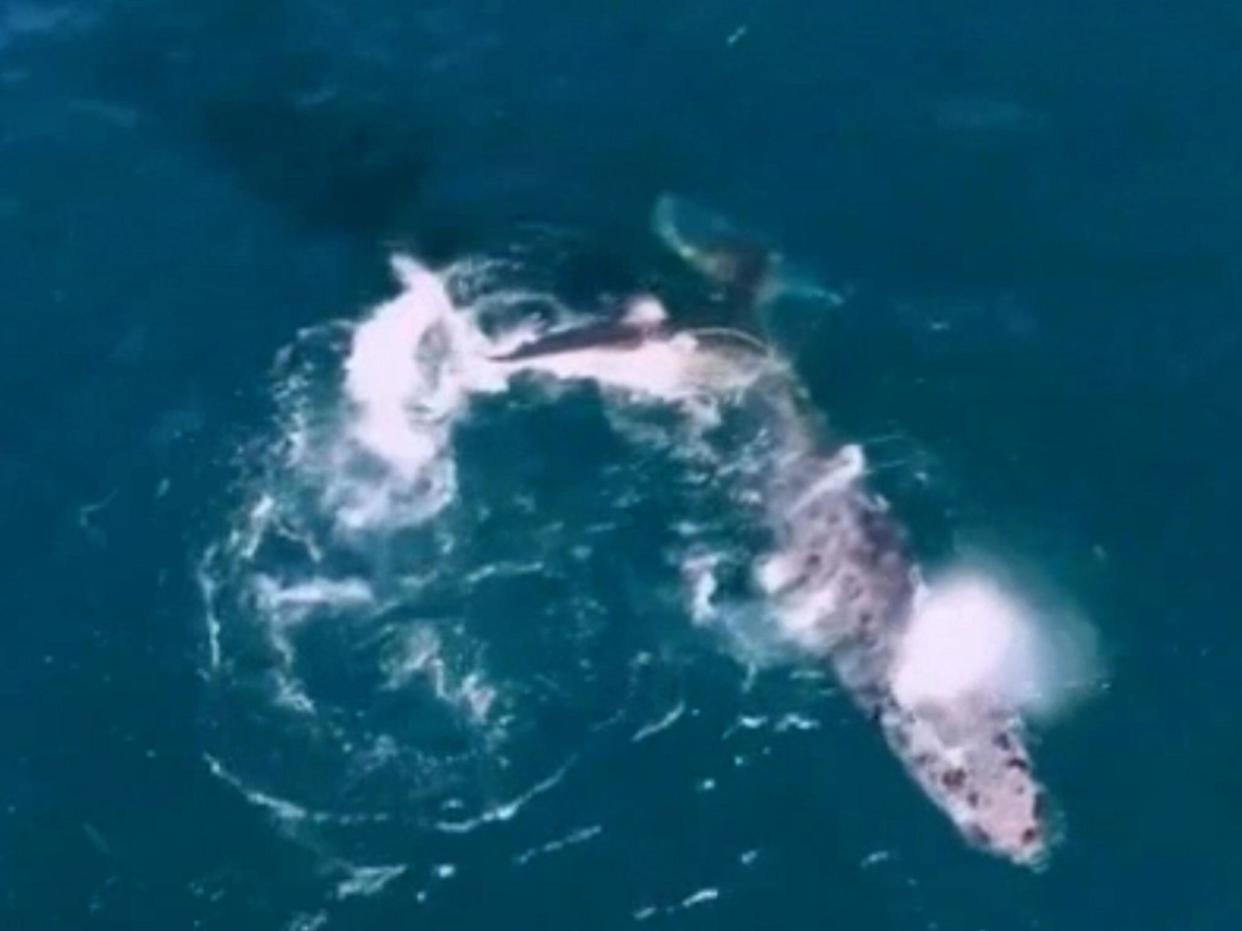Drone footage shows a great white shark drowning a 33ft humpback whale off South Africa

A great white shark has been filmed strategically killing a humpback whale more than three times her size for the first time.
Using a drone to capture the scene off the coast of South Africa, researchers observed the shark biting the juvenile whale’s tail before dragging down on the whale’s head to get the larger mammal’s blowhole underwater and eventually drowning it.
Ryan Johnson, research coordinator for Blue Wilderness Research unit, filmed the encounter by chance after a member of the public informed the National Sea Rescue Institute (NSRI) that a whale had gotten entangled in a net.
Expecting to film a scavenging event, the marine biologist arrived at the site to find the whale still alive but in bad shape, he told Newsweek.
The shark, known to researchers as Helen, is believed to have bitten the whale’s tail area to open up an artery and further weaken its prey. It took Helen 50 minutes to kill the 33ft-long humpback whale.
Mr Johnson said: “From everything I found, this was really the first verified report of a shark successfully killing a live whale.
“I think… this behaviour is very rare and requires a number of aspects to all come together to be possible. A weak whale passing through a great white hot spot, and then a large and confident great white encountering it.”
While great white sharks are unlikely to attack whales on a regular basis – as a fully-grown whale can inflict serious damage just by hitting a shark with its tail – apex predators are responsible for keeping ecosystems in balance. One of the ways they do this is to remove weak or unhealthy prey from the ecosystem, said Mr Johnson.
“In this case, we are talking about one of the planet’s largest predators attacking and killing one of the world’s largest species. It is just fascinating that we live on a planet that can still surprise us with an encounter of this magnitude,” he added.
The footage will air as part of a documentary examining the interactions between sharks and whales on National Geographic on 28 July.

 Yahoo News
Yahoo News 
